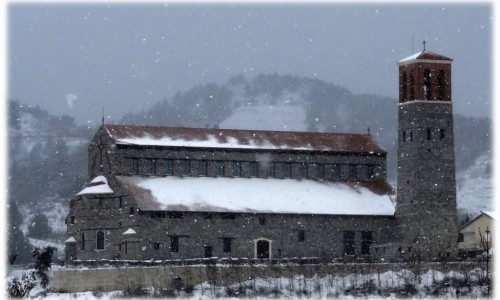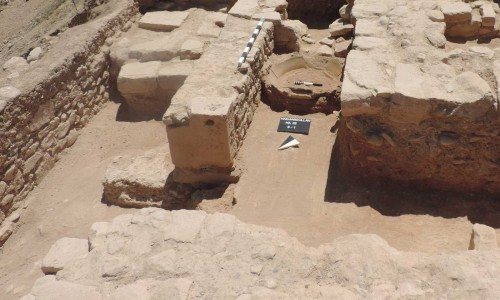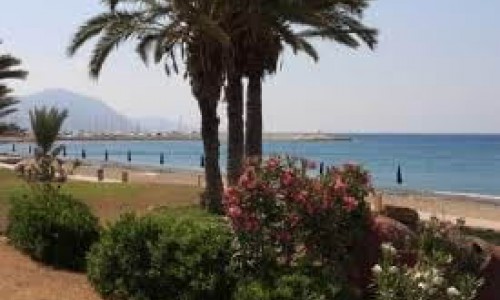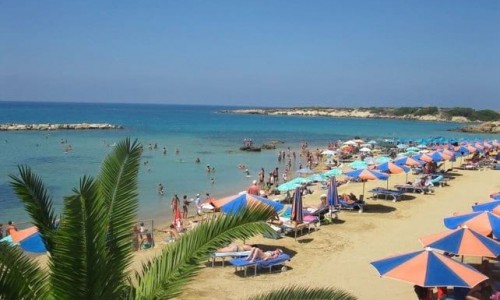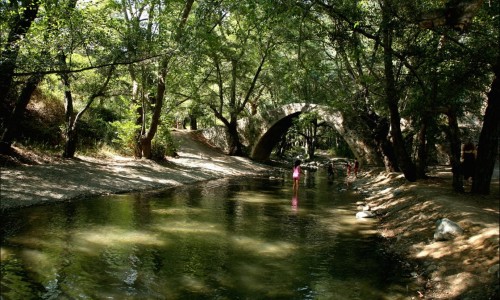Tombs of the Kings - Paphos
Nestled along the sun-drenched coastline of Paphos, Cyprus, the Tombs of the Kings stand as a testament to the island's rich tapestry of history and culture. Despite their regal moniker, these tombs were not the final resting places of monarchs but of high-ranking officials and aristocrats during the Hellenistic and Roman periods. Their grandeur and architectural sophistication, however, have earned them a place of prominence among Cyprus's archaeological treasures.
Dating back to the 4th century BC, the Tombs of the Kings were part of the ancient city of Nea Paphos, which served as the capital of Cyprus during the Ptolemaic dynasty. This era was marked by a fusion of Greek and Egyptian influences, evident in the tombs' design and construction. The site remained in use until the 3rd century AD, reflecting the city's sustained importance over several centuries
Carved directly into the solid rock, the tombs showcase an impressive array of architectural features. Some tombs resemble the houses of the living, complete with atriums and peristyles, embodying the ancient belief that the afterlife mirrored earthly existence. Doric columns, frescoed walls, and intricate carvings adorn these subterranean chambers, highlighting the artisans' skill and the cultural syncretism of the period.
The Tombs of the Kings offer invaluable insights into the funerary practices and societal structures of ancient Paphos. The inclusion of Rhodian amphorae among burial offerings, identifiable by manufacturing stamps, has allowed archaeologists to establish more precise chronologies for the Eastern Mediterranean's Hellenistic and early Roman periods.
In recognition of their historical and cultural importance, the Tombs of the Kings, along with other sites in Paphos, were designated as a UNESCO World Heritage Site in 1980. This status underscores the site's value as a cultural landmark and ensures its preservation for future generations.
Today, the Tombs of the Kings are a prominent feature of the Paphos Archaeological Park, attracting visitors from around the world. Exploring the tombs offers a unique opportunity to delve into Cyprus's ancient past, with the site's proximity to the Mediterranean Sea providing a picturesque backdrop. Visitors can wander through the subterranean chambers, marvel at the architectural details, and reflect on the lives of those who once held sway in this historic city.
The Tombs of the Kings stand as a remarkable intersection of history, architecture, and culture. Their preservation allows us to glimpse into a world long past, offering lessons and inspirations that continue to resonate today.
District : | Paphos |
Accreditation: | Cyprus Department of Antiquities |
Operating hours: | Winter hours: 16 September- 15 April Monday – Sunday 08:30-17:00 Closed on 1st January , Easter , 25th December Summer hours : 16 April – 15 September Monday – Sunday 08:30:19:30
During the following dated the archaeological site is open as follows : 6th January 08:30 -17:00 , 25th March 08:30 - 17:00 , Green Monday 08:30 – 17:00 , 1st April 08:30 – 17:00 , Good Friday 08:30-19:30 , Good Saturday 08:30-19:30 Easter Monday 08:30-19:30 , 1st May 08:30-19:30 Whit Monday 08:30-19:30 , 15th August 08:30-19:30 1st October 08:30-17:00 , 28th October 08:30-17:00 24th December 08:30-17:00 , 26th December 08:30-17:00 |
Accessibilities: | The archaeological area is accessible for people in a wheelchair. Toilets Parking areas Transactions can only be made with cash 20 % Discount for groups of over 11 people accompanied by a certified tour guide. Weekly tickets are available for 25 euros Three day tickets are available for 17 euros Day tickets are available for 8,50 euros Tickets are available at any museum or archaeological site that is operated by the department of antiquities. |
Telephone: | 00357-26306295 |
Website: | |
Email: | |
Entrance Fee: | 2,50 euros per person Children up to the age of 14 – free Students – free with student card Soldiers – free with uniform People with icom cards and unemployed – free 50% discount to people who receive public assistance, to people from large families and retired people with card presentation. |
Tickets: | Tickets can be bought at the entrance of the Tombs of the Kings or any other museum or archaeological site that is operated by the department of antiquities. |



















